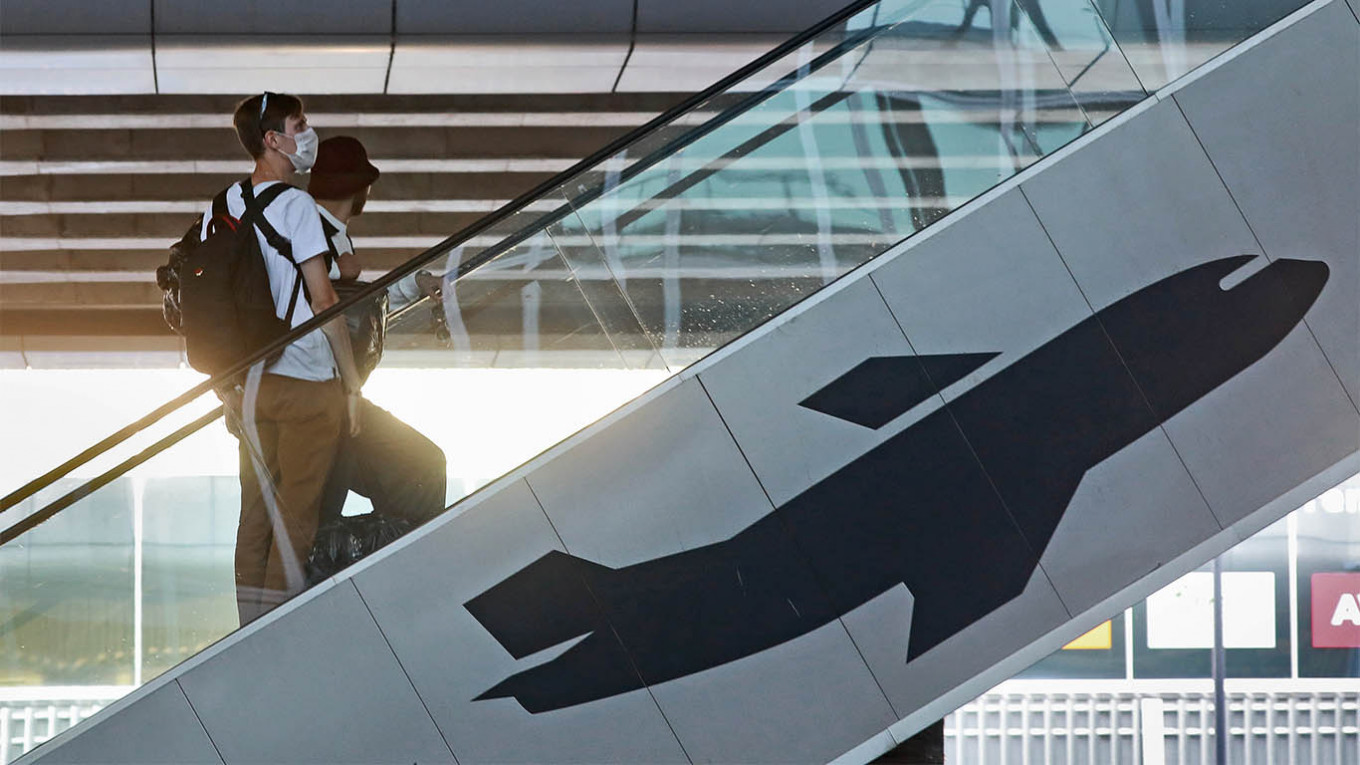Greece and Poland have updated their coronavirus travel restrictions to allow Russian citizens to cross their borders for two-week periods as Russia’s virus caseload topped the one million milestone.
Poland’s government has removed Russia from its latest list of countries subject to a travel ban, meaning flights will be able to resume from Wednesday. According to the Notesfrompoland.com news website, the Polish government is expected to update its travel ban list again on Sept. 15.
Greece will allow Russians to fly into the country between Sept. 7 and 21, according to a government decision cited by the RIA Novosti news agency. The number of entries is capped at 500 Russian nationals per week, who will be required to provide a negative Covid-19 test result within three days of entry and complete a detailed personal information form.
Belarus has also announced agreements to gradually reopen air and land borders with Russia at an unspecified time in the future. Moscow has not yet publicly commented on Minsk’s announcement.
Several media reports have said that Russian citizens without authorization used the land border with Belarus to travel to Europe. The European Union barred Russian travelers from entering when it reopened its outside borders on July 1.
Ex-Soviet Belarus has officially confirmed nearly 72,000 coronavirus infections, with Poland reporting almost 68,000 cases and Greece confirming 10,500. Russia has the world’s fourth-highest number of cases, with more than a million confirmed infections.
Russia closed its borders and grounded most international flights in late March to head off the spread of Covid-19, allowing only special evacuations of Russian citizens from abroad and government-authorized flights.
Russia gradually lifted travel restrictions to Britain, Turkey, Switzerland and Tanzania starting in August.
A Message from The Moscow Times:
Dear readers,
We are facing unprecedented challenges. Russia's Prosecutor General's Office has designated The Moscow Times as an "undesirable" organization, criminalizing our work and putting our staff at risk of prosecution. This follows our earlier unjust labeling as a "foreign agent."
These actions are direct attempts to silence independent journalism in Russia. The authorities claim our work "discredits the decisions of the Russian leadership." We see things differently: we strive to provide accurate, unbiased reporting on Russia.
We, the journalists of The Moscow Times, refuse to be silenced. But to continue our work, we need your help.
Your support, no matter how small, makes a world of difference. If you can, please support us monthly starting from just $2. It's quick to set up, and every contribution makes a significant impact.
By supporting The Moscow Times, you're defending open, independent journalism in the face of repression. Thank you for standing with us.
Remind me later.






